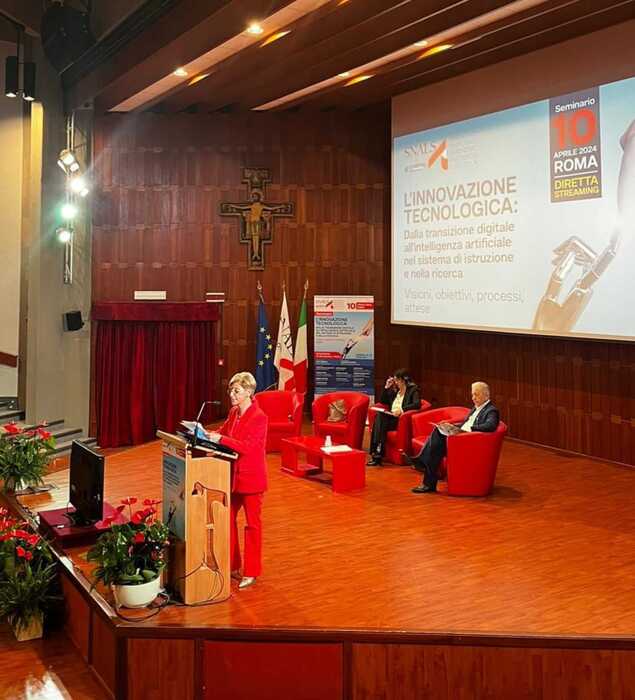With the arrival of Artificial Intelligence "there are certainly risks, but also opportunities, which require a common vision and collaboration between the various institutional and social subjects", says Elvira Serafini, general secretary of Snals. Access to knowledge today has radically changed: students no longer learn content only with the mediation of the teacher or the textbook, but they learn and study it online.
Technology also affects school-family relationships, with remote conversations with teachers, with online student registration and with remote relationships with secretariats. All these processes have implications on different sides. On that of the definition of the function and organization of institutions, on their way of relating with other bodies and with the territory, with their being recipients of innovation and, at the same time, agents of diffusion and promotion of transformation. Schools and teachers are not asked for a simple adaptation, but for an overall rethinking of their role and of the very concept of teaching, in which, even more forcefully, the dimension of research, interpretation, critical analysis, re-elaboration and selection is affirmed.

